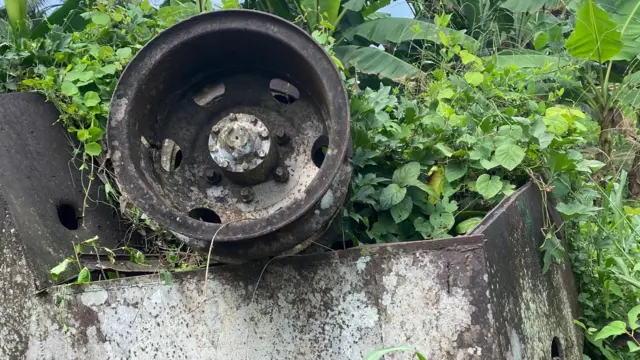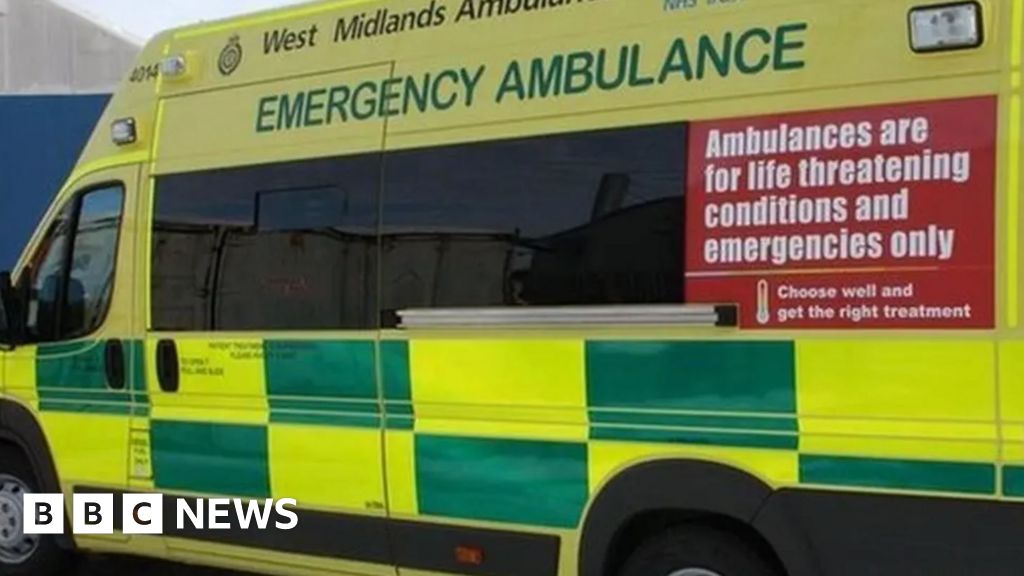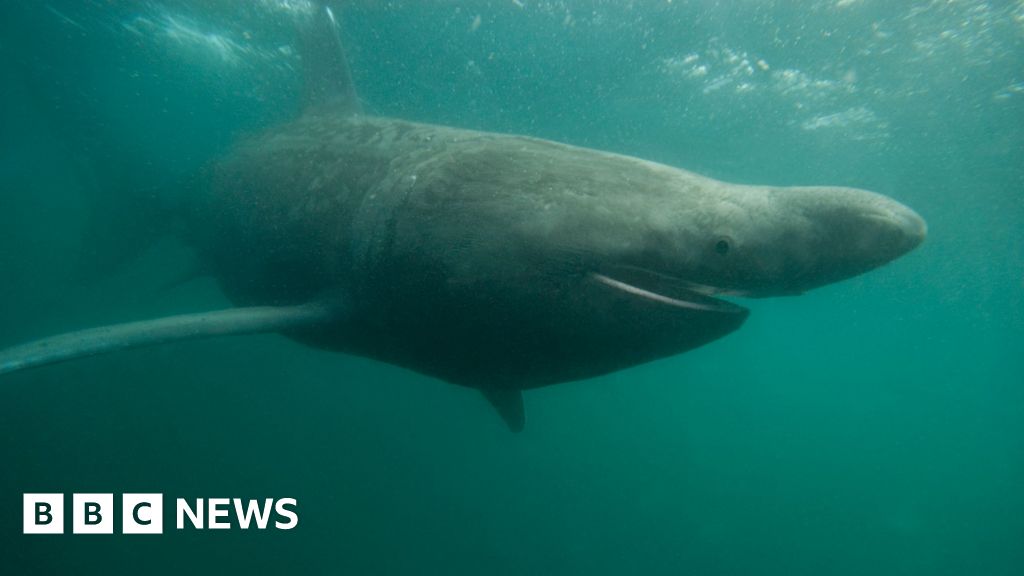Nigeria-Biafra war: Foriku-Boridele, di abandoned community wit remnants of Nigeria civil war - BBC News Pidgin
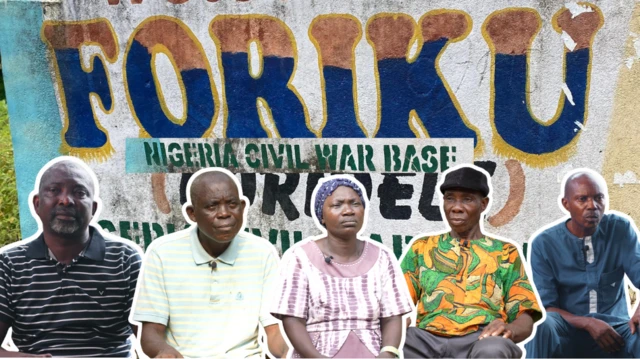
Odukoya Akinmeje dey veri young wen e experience di Nigeria-Biafra war wey enta dia community, Foriku for 1967.
Like oda young boys for di community, e no sabi how war take enta Foriku, but one tin wey pain am na wetin e and im papa and mama go through during di period of di war.
Di sounds of bullets, di presence of sojas and di constant need of food by di pipo, na one of di memorable experience of Odukoya wen di war dey go on.
Howeva, dis na ova 54 years afta di Nigeria-Biafra war bin happun and end, but Foriku neva recova finish as tins wey still remain from di war don destroy dia farmlands according to di residents.
Foriku-Boridele dey located near di Ore, present day Ondo state southwest Nigeria, and na one of di battleground during di Nigeria-Biafra war wey also dey known as di civil war.
BBC Pidgin enta di town to see wetin di sojas leave behind, di pain of di residents of Foriku as dem live wit wetin remain from di Nigeria civil war and wetin di war cost dem till now.
Di civil war bin start for January 1967 between di military forces of di Nigerian govment and di Biafra sojas. Di fight na sake of request wey Biafra say dem wan get dia own territory and stand alone but di Nigerian govment no gree.
Dat war wey happun between 1967 to 1970, millions of pipo wey include sojas and civilians, many of dose wey be women and children bin die.
"E get one man wey get one leg, e run come our community to tell us say war don reach Ore. By dat Saturday, di road don full wey pipo dey carry food so dem fit run comot," Odukoya recall how e witness wen di war enta dia community.
"We run comot but dem tell us say di war don end. E no reach one week wey we return wen anoda war begin again and we begin see sojas dey march by di roadside. Around 2 o clock for night na im di battle start."
Odukoya don become di head of Foriku community and di trauma of di war experience still dey fresh for im mind.
Foriku get abandoned war equipments wey di sojas leave behind afta di war, several residents wey we speak to tell BBC Pidgin say di war really destroy dia land.
Some explain say wen dem cut bush and wan burn am, different tins go dey explode sake of say some of di chemicals wey dem use during di war dat time still dey ground.
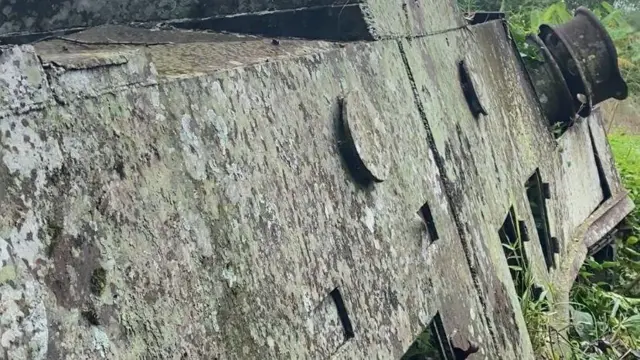
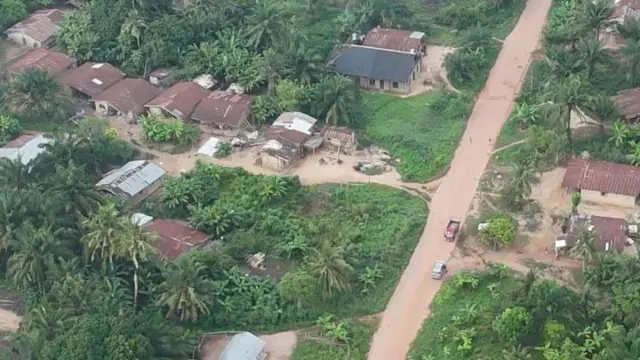
Johnson Danjuma na one of di resident for Foriku community, im papa settle for di community plenti years ago as a farmer.
E bin hope say di farmland go yield and dey fertile like how im papa tell am many years ago, but since afta di war, e say dia farmlands don destroy and di fear of bullets neva comot for dia minds.
Ova 54 years afta di war, Danjuma sleep and wake near di armoured tank left behind by di sojas. E dey always remind am of how e and im family bin struggle during di war, even though im bin dey veri small dat time.
"My papa carry us go hide for one place. We just dey bush, no be wia papa dey di children dey. Biafra sojas dey, Nigerian sojas dey.
Danjuma say some pregnant women born pikin for bush during dat time of war, and e no pray to experience dat kain war again.
Meanwhile, Gbenga Adeyemi wey be di youth leader for Foriku community say afta di war, plenti of dia youths bin die sake of say dem drink water wey di chemical wey dem use during di war don enta.
"According to history wey I hear, some of our youths here, during di time wey di war end, dem drink di water and dem die prematurely becos of di chemical. Our land don spoil, di land no good again and dem no rememba us," Gbenga tok.
Foriku community dey live witout any social infrastructures and di aftermath dey impact di children, as dem travel long distance to get education.
As we waka di community, no visible site of drinkable water, no health facility and no school.
Elizabeth Iwam wey grow up for di community bin narrate to us how she dey trek long distance to go school. She say she go school reach form 3 bifor she drop comot.
Now, di chidlren for Foriku travel as far as Ore, a neighbouring town wit about 11km distance to access education. Coupled wit dat is the fear of di war wey once invade dia community.
"Since wen di war don finish, we dey suffer for here, no school, no evritin, notin wey dem do for here, especially dat education."
"Wen I dey small, wey di war don happun finish, na fear we dey take go school, na di same fear our pikin dey take go school".
Elizabeth wit oda women for di community dey hope say one day, dem fit get help to access basic social amenities like oda communities.
